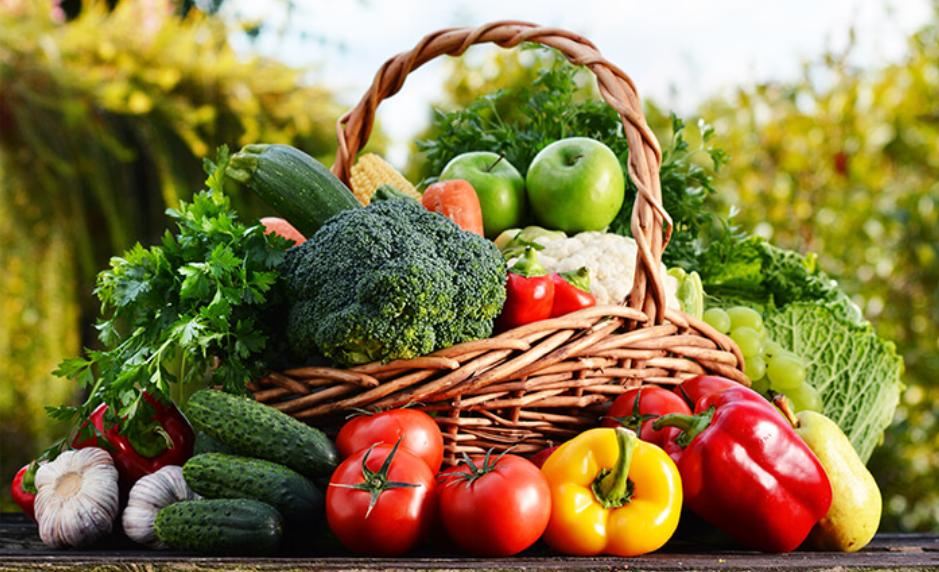
BLOG
Botswana’s decision to lift the ban on vegetable imports from South Africa will ease food inflation pressures there

We are encouraged that the leadership in Botswana has
decided to lift the ban on vegetable imports from South Africa. The new administration under President Duma Boko
wants to ensure that the people of Botswana have access to high-quality
agriculture and food products.
The people of Botswana will now have access to
better-priced and high-quality vegetables from South Africa. In November 2024, South Africa's vegetables were deflated (-2,6%). Meanwhile, in Botswana, vegetable price inflation
was still double digits. This speaks to the difficulty the households had to
ensure and the potential benefits of affordable prices in the coming months.
The process of lifting the ban on vegetable imports
from South Africa will be in two phases. In Phase One, the import restrictions
were lifted immediately on vegetables such as turmeric, patty pan, pumpkin,
sweet potatoes, green peas, mushrooms, and eggplant, among other products.
Phase Two will be in April 2025, and the ban will be
lifted on beetroot, butternut, onions, tomatoes, sweet paper, potatoes and
watermelons, amongst other products.
We are acutely aware of Boswana's ambition to boost agricultural
production where land capabilities permit, which must be supported. There are
better ways of improving domestic production without banning imports from South
Africa. We think Botswana could benefit from some of South Africa's
technologies to improve its agriculture.
There are already some cases in which various
countries in the region benefit from South Africa's agricultural technologies.
A case in point is the citrus industry, where research is primarily done in
South Africa and shared with the Citrus Growers Association of Southern Africa
members. Similarly, South Africa has imported some vaccines for the livestock
industry from Botswana in the past few months.
This example shows that cooperation could lead to
effective regional agricultural development.
Going forward, each country's approach should be to
communicate its ambitions and not resort to trade-distorting mechanisms that
undermine consumer welfare. Equally, South Africa, as a significant
agricultural producer in the region, should continuously seek to broaden export
markets in other areas, such as Asia and the Middle East, to benefit the
Southern Africa region.
The export growth in the coming years should focus on
the Middle East while maintaining access to the existing markets. The Southern
African countries are working to expand their agricultural production, so South
Africa must focus on broadening access to new regions with potentially more
robust demand. But this will not be an overnight effort, especially in the
current climate of trade fragmentation.
A similar approach from Namibia is critical. Namibia still has various restrictions on South Africa's vegetable imports. They must follow Botswana's policy approach and lift the restrictions on vegetable imports from South Africa. This will also be ideal for the consumers in Namibia.
After that, the Ministers of Agriculture in the region
should encourage knowledge sharing amongst agricultural stakeholders so the
countries that intend to boost their production in the coming years can easily
access the best technologies and know-how.
If any of the Southern African Customs Union (SACU)
countries believe their agricultural industries are under pressure from exports
from South Africa; in such a case, there should be clear communication about
such a matter so the exporters can provide space for domestic supplies.
Southern Africa's agricultural collaboration could be achieved without the
trade confrontation.
Overall, the decision by the new leadership of
Botswana to lift the ban on the imports of vegetables from South Africa and the
speed at which this action will be taken is commendable. We need to work
continuously on strengthening regional agricultural collaboration and resist
any urge to complicate trade in the region in the future. Namibia must now
follow the same approach, which will be vital to boosting domestic food
security.
n
Wandile
Sihlobo, email: wandile@agbiz.co.za

0 COMMENTS
LEAVE A COMMENT